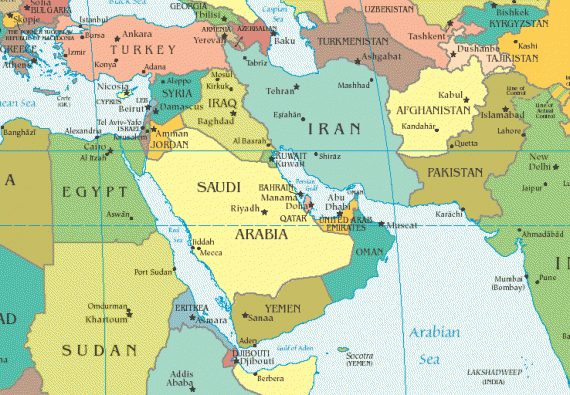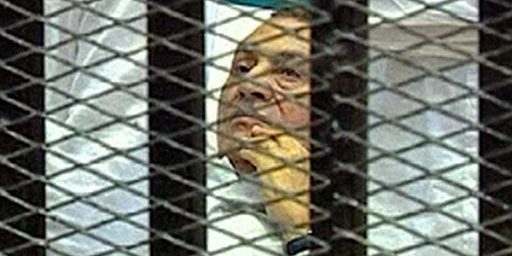Turkey Seeks To Create A New Power Axis In The Middle East
On the eve of the United Nations General Assembly session that is likely to stoke plenty of tension in the Middle East, Turkey seems to want to take the region in a very different direction:
ANKARA, Turkey — A newly assertive Turkey offered on Sunday a vision of a starkly realigned Middle East, where the country’s former allies in Syria and Israel fall into deeper isolation, and a burgeoning alliance with Egypt underpins a new order in a region roiled by revolt and revolution.
The portrait was described by Foreign Minister Ahmet Davutoglu of Turkey in an hourlong interview before he was to leave for the United Nations, where a contentious debate was expected this week over a Palestinian bid for recognition as a state. Viewed by many as the architect of a foreign policy that has made Turkey one of the most relevant players in the Muslim world, Mr. Davutoglu pointed to that issue and others to describe a region in the midst of a transformation. Turkey, he said, was “right at the center of everything.”
He declared that Israel was solely responsible for the near collapse in relations with Turkey, once an ally, and he accused Syria’s president of lying to him after Turkish officials offered the government there a “last chance” to salvage power by halting its brutal crackdown on dissent.
Strikingly, he predicted a partnership between Turkey and Egypt, two of the region’s militarily strongest and most populous and influential countries, which he said could create a new axis of power at a time when American influence in the Middle East seems to be diminishing.
“This is what we want,” Mr. Davutoglu said.
“This will not be an axis against any other country — not Israel, not Iran, not any other country, but this will be an axis of democracy, real democracy,” he added. “That will be an axis of democracy of the two biggest nations in our region, from the north to the south, from the Black Sea down to the Nile Valley in Sudan.”
(…)
Other countries — Iran, Saudi Arabia and Israel — would undoubtedly look upon an Egyptian-Turkish axis with alarm. Just a year ago, Egypt’s own president, Hosni Mubarak, viewed Turkey, and Mr. Erdogan in particular, with skepticism and suspicion. But in the view of Mr. Davutoglu, such an alliance was a force for stability.
“For the regional balance of power, we want to have a strong, very strong Egypt,” said Mr. Davutoglu, who has visited the Egyptian capital five times since Mr. Mubarak was overthrown in February. “Some people may think Egypt and Turkey are competing. No. This is our strategic decision. We want a strong Egypt now.”
Interesting to say the least. What it means for the future is anyone’s guess.







I think it’s safe to assume Turkey isn’t that interested in its NATO membership any more…
J.
In the short term, it means that Glenn Beck will use this as “proof” that his “Caliphate Rising” prediction was true.
Egypt’s military is going to have to give up power before they’re going to be at the center of anything having to do with democracy. Where’s the arguments now about whether that was a coup or not?
@Jay Tea:
I didn’t see anything that was incompatible with continued membership in NATO.
Turkey is fondly remembering when it was know as the Ottoman Empire. Their problem is that not too many others in the region have such fond memories of the empire.
Is Turkey now a player on the world scene? News to me. Where have they been?